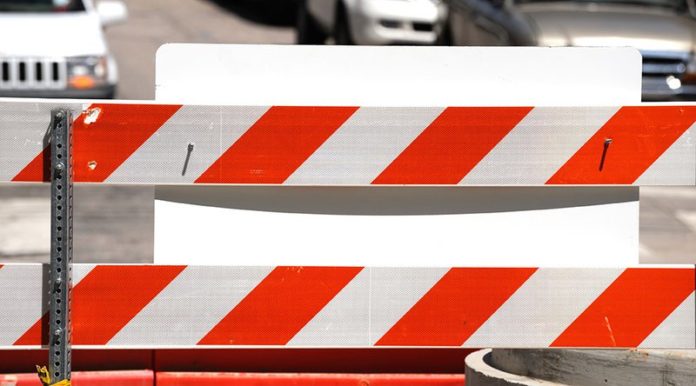
When Arthur Breitman, cofounder of Tezos, published a white paper on the cryptocurrency project in September 2014, he listed the author as L.M. Goodman. Later, when Breitman disclosed that he was the real author behind the work, many wondered why he used a pseudonym.
As it turned out, at the same time he started working on Tezos, a project that went on to raise $232 million in an initial coin offering (ICO) in July 2017, Breitman was working at investment bank Morgan Stanley. He was also registered as a broker-dealer with the Financial Industry Regulatory Authority (FINRA), a self-regulatory body with oversight of dealers and brokers in the U.S.
FINRA requires registered securities professionals to let their employers know about any for-profit business they are conducting on the sidelines. Breitman, who left Morgan Stanley in 2016 and is no longer registered with FINRA, neglected to inform his employer about Tezos, and the fact he used a pseudonym on the white paper indicates he may have been trying to conceal his involvement.
These and other details of the Tezos project were brought to light in October 2017, when Reuters published a full report on the project, thereby putting Tezos on the radar of regulatory bodies, such as FINRA and the U.S. Securities and Exchange Commission (SEC).
Now, according to an April 19, 2018, report by Reuters, as part of an April 18, 2018, settlement, FINRA has fined Breitman $20,000 and suspended him from associating with broker-dealers for two years over allegations that he made false statements about the Tezos project during his time at Morgan Stanley.
The question is, how big a deal are these punishments, and will they have any impact going forward on the Tezos project, which has yet to launch?
Relatively Small Fine
FINRA and SEC fines are not uncommon. Anyone who checks the broker records of institutions like RBC, Vanguard and Bank of America, where people in the U.S. and Canada place their money, will see that these financial firms all have dings against them, and, just as Breitman did, most individuals settle by either not confirming or denying the charges.
A look at FINRA’s monthly rundown of disciplinary actions makes it clear that Breitman’s fine of $20,000 is on the low end. Many more of the fines are in the range of hundreds of thousands, if not millions, of dollars. In comparison, this fine appears to be nothing more than a minor slap on the wrist.
More notable is the fact that Breitman was barred from the securities industry for two years. Few people are barred from the securities industry for any length of time, and two years is an upper limit, according to FINRA’s sanction guidelines, which states that “absent extraordinary circumstances, any misconduct so serious as to merit a suspension of more than two years probably should warrant a bar (of an individual) or expulsion (of a member firm) from the securities industry.”
Potential Problems
By definition, a broker-dealer is someone who facilitates security trades on behalf of investors. The ban essentially means that Breitman cannot associate with any company that is buying or selling securities over the next two years, unless he gets a special waiver. Even then, he cannot be directly associated with the business aspect (deals, committee meetings, financial activities, etc.) of a securities-related company.
If the Tezos tokens, known as “tezzies,” are deemed a security, this may pose a problem for Tezos down the road. Earlier this year, SEC Chairman Jay Clayton stated that all ICO tokens were securities. Some venture capitalists are lobbying for exemptions for some tokens, but currently the SEC is classifying all ICOs as securities. If the SEC issues a ruling to that effect, then all ICO projects would then have to register with the SEC.
What that means is, if Breitman is suspended by the industry, he may have to eventually distance himself from the Tezos project. Robert Hockett, Edward Cornell Professor of Law at Cornell Law School, told Bitcoin Magazine that if Tezos is engaged in a business that the SEC deems to be the securities business, then Breitman will not be permitted to have any affiliation of that sort with that company, “or maybe better put, that company will not be allowed to be associated with him in any way,” he said.
Tezos actually consists of two entities: Tezos Foundation, a Zug-based nonprofit that oversaw the Tezos ICO; and Dynamic Ledger Solutions (DLS), a Delaware-based company under the control of Breitman and his wife, Kathleen Breitman, that owns and oversees the development of the Tezos software. Although the two entities are separate, they are also connected; for instance, the Breitmans went after the Tezos Foundation last year to get its former president deposed. If DLS is shown to be profiting off the buying and selling of securities, then Breitman may be restricted from actively participating in the business.
Hockett warns, “The securities laws and the SEC define ‘affiliation’ broadly for these purposes.” More importantly, he also points out that “we won’t know the full scope of Mr. Breitman’s suspension until the FINRA order is made public.”
In a statement to Reuters, Sarah Lightdale, an attorney for Breitman, played down the settlement. “The settlement with FINRA is unrelated to and has no impact on the launch of the Tezos network,” she said. Then added, “Arthur cooperated fully with FINRA at all times and Arthur is pleased to put this personal matter behind him.”
This article originally appeared on Bitcoin Magazine.

Bitcoinmagazine.com is author of this content, TheBitcoinNews.com is is not responsible for the content of external sites.
Our Social Networks: Facebook Instagram Pinterest Reddit Telegram Twitter Youtube










